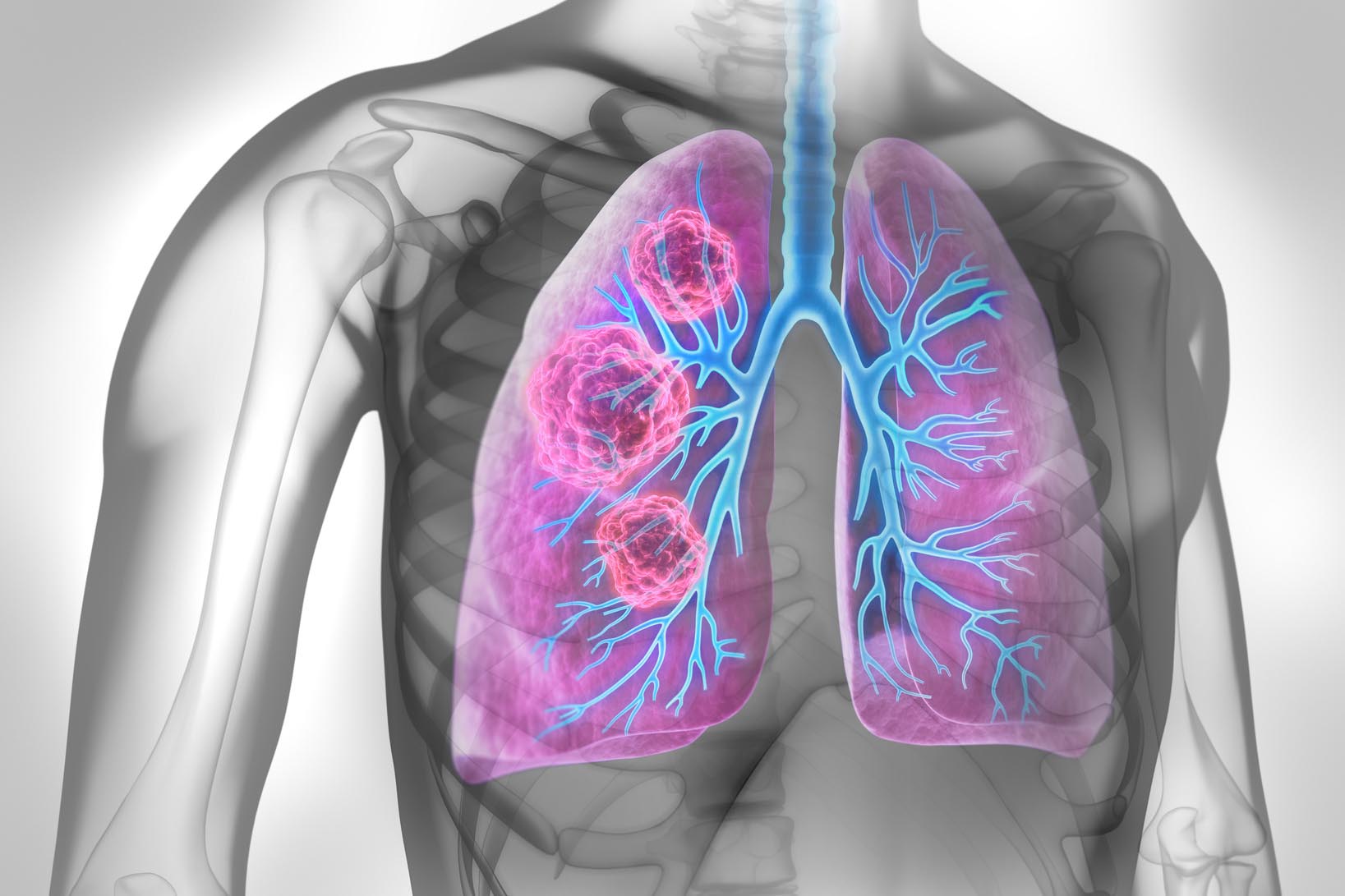• Lung microbes promote tumor growth by activating the immune system
• Microbiota-induced immune cells trigger tumor development
-
What is already known on this topic
Lung cancer, the leading cause of cancer-related deaths, is associated with chronic inflammation, but the causes of such inflammation are poorly understood. -
What this research adds
Commensal bacteria within the lungs are able to activate immune cells and trigger inflammation, thus creating an environment that helps tumor cells to grow. -
Conclusions
The findings could open up new avenues for lung cancer treatments.
Lung bacteria can cause inflammation associated with lung cancer by activating the host’s immune system, researchers reported in the journal Cell. The study was conducted by Chengcheng Jin and her colleagues at the Massachusetts Institute of Technology in Cambridge.
Lung cancer is the leading cause of cancer-related deaths, killing more than 1 million people worldwide every year. This type of cancer is associated with chronic inflammation, but the causes of such inflammation remain unclear.
A few studies have linked lung microbiota to cancer, and there’s evidence that lung cancer patients suffer complications from pulmonary infections.
So the researchers set out to test the role of lung-dwelling bacteria in the development of lung tumors. To do so, the team studied mice that tend to develop a type of lung cancer called adenocarcinoma. These mice are genetically engineered to express the oncogene Kras and lack the tumor suppressor gene p53.
Lung microbes promote tumor growth by activating the immune system
To assess the role of commensal bacteria in the initiation of lung cancer, the researchers compared tumor development between germ-free mice and mice grown in the presence of bacteria.
Germ-free mice were significantly protected against lung cancer development, showing delayed tumor growth and less cancer lesions than mice grown in the presence of bacteria. Treating the latter with antibiotics suppressed tumor growth in both early and advanced stages.
Next, the team analyzed the composition of the lung microbiota to study the relationship between the lung microbiota and tumor development.
Mice with lung cancer had more bacteria and a less diverse microbiota in their lungs than health mice. The most common bacterial families in tumor-bearing lungs were Herbaspirillum and Sphingomonadaceae.
Compared to healthy mice, mice that developed cancer also had higher levels of immune molecules such as interleukin-1b (IL-1b) and IL-23 as well as increased numbers of immune cells called γδ T cells. Most of these cells produced the inflammatory cytokine IL-17, which creates an environment that helps tumor cells to grow.
Microbiota-induced immune cells trigger tumor development
Because γδ T cells originate in the lungs, the researchers hypothesized that their proliferation was due to local growth rather than recruitment from the bloodstream. Indeed, the team observed increased proliferation of γδ T cells in tumor-bearing lungs compared to healthy lungs.
The lungs of mice that developed cancer also had increased numbers of neutrophils, another type of immune cell that releases inflammatory molecules, further enhancing a favorable growth environment for tumor cells.
However, when the researchers treated the rodents with antibiotics either two or seven weeks after the tumors began to grow, the tumors shrank by about 50%. Drugs that block γδ T cells or IL-17 had similar effects on the tumors.
What’s more, when the team analyzed samples from lung cancer patients, they found unusually high numbers of γδ T cells as well as an altered microbiota composition similar to that observed in mice that developed cancer.
For this reason, the researchers hope that their findings could open up new avenues for lung cancer treatments; drugs that prevent microbiota-induced γδ T cell activation could have therapeutic benefits for lung cancer patients, they say.









